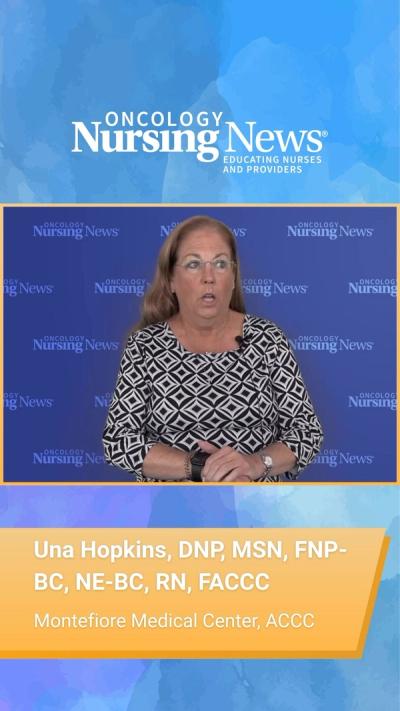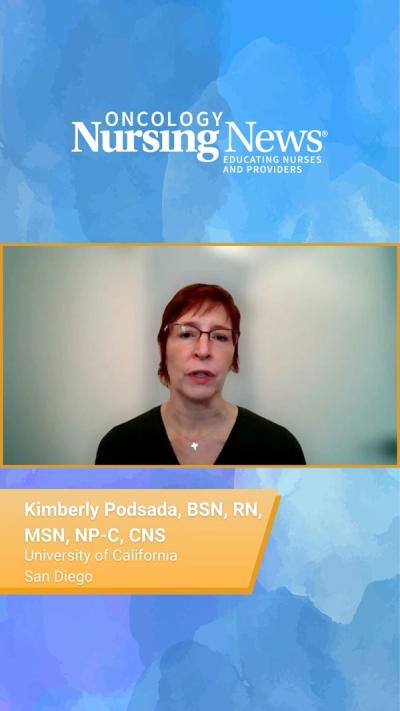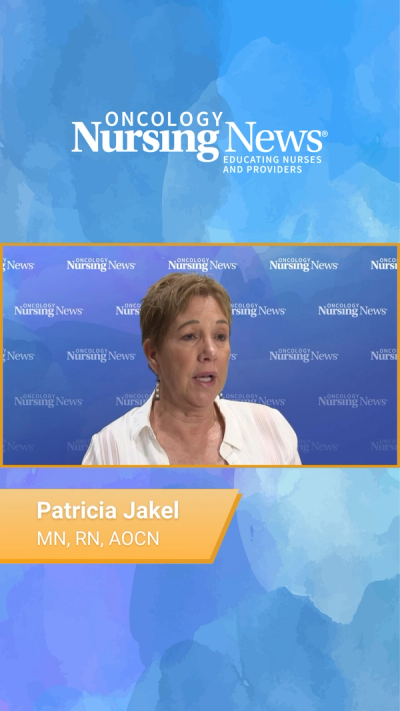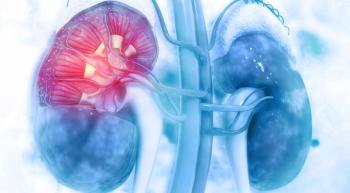
Conference Coverage
Latest Content

Adjuvant ChemoRT Yields Long-Term Survival in High-Risk Endometrial Cancer

Intensified First-Line Therapy for dMMR/MSI-H mCRC: Nursing Implications of the COMMIT Trial

15,000 NYC Nurses Strike Highlights Impact on Oncology Care

JSKN003 Given FDA Breakthrough Therapy Status in HER2+ PROC

Linking Patient Experience With Next Steps in Renal Cell Carcinoma

Shorts







Podcasts
Videos
All News

Elizabeth Lee, MD, shares that rinatabart sesutecan’s mechanism of action may allow more patients with advanced endometrial cancer to receive effective treatment.

The frontline combination of encorafenib, cetuximab, and FOLFIRI yielded significant improvement vs SOC in BRAF V600E-mutated metastatic colorectal cancer.

Margarita Huober, AGNP, AOCNP, explains that understanding a patient on an individual level leads to more informed care decisions in RCC.

Data link physical activity with reduced cancer-related fatigue in patients with colorectal cancer.

Transportation is a key accessibility issue for patients with HR-positive metastatic breast cancer receiving CDK4/6 inhibitors at community clinics.

Findings from a real-world, head-to-head comparison show greater colorectal cancer risk reduction and safety with the use of a GLP-1RA vs aspirin.

Median PFS over 1 year and median OS over 2 years have been observed for the first time in a phase 3 trial for gastroesophageal adenocarcinoma.

ECOG performance status of 1 was linked with worse patient-reported outcomes in patients with gastric or gastroesophageal junction adenocarcinoma.

Zolbetuximab plus mFOLFOX6 and nivolumab led to meaningful gains in patients with unresectable gastric/gastroesophageal junction adenocarcinoma.

Destiny-Breast09 PROs demonstrated higher quality of life and fewer gastrointestinal symptoms in patients with HER2-positive advanced breast cancer.

Clinicians of color can experience higher rates of vicarious trauma when treating patients with cancer.

Nursing ethics expert Katherine Brown-Saltzman, MA, RN, shares insights on how to manage difficult ethical issues when treating patients with cancer.

Expert advice for administering and monitoring liso-cel in patients with follicular lymphoma.

The microbiota-based therapy MaaT013 showed promising efficacy and manageable safety in those with acute GVHD with gastrointestinal involvement.

Look back at the top 5 updates for oncology nurses and advanced practices providers published in 2025.




























































































